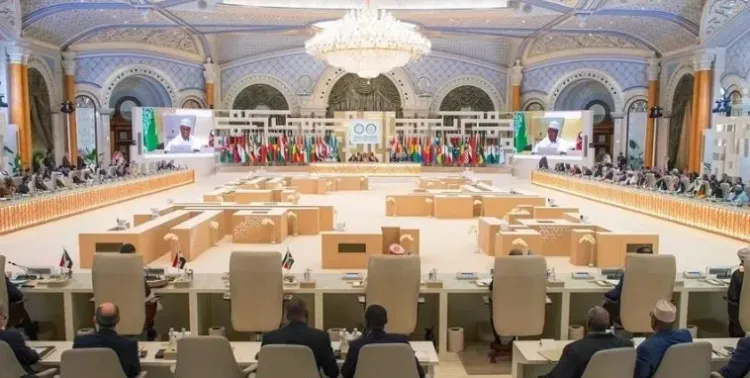Why Did the Arab Ministerial Committee Reject Israel's Measures to Isolate Jerusalem?

Synopsis
Key Takeaways
- The Arab ministerial committee strongly opposes Israel's actions in Jerusalem.
- Israel is criticized for its settlement expansion and its impact on Palestinian rights.
- The committee emphasizes the need for adherence to international law.
- The situation in Jerusalem remains a focal point of regional tensions.
- Ongoing discussions are essential for achieving peace.
Cairo, Sep 5 (NationPress) An Arab ministerial committee has firmly rejected Israel's attempts to isolate Jerusalem, emphasizing that Israel lacks sovereignty over Jerusalem and its Islamic and Christian sacred sites.
The committee, tasked with coordinating international efforts against Israel's illegal policies in Jerusalem, released a statement following their 10th meeting during the 164th regular session of the Arab League (AL) Council, as reported by Xinhua news agency.
Established by the AL in 2021 and led by Jordan, the committee comprises representatives from Iraq, Palestine, Algeria, Somalia, Saudi Arabia, Qatar, Egypt, Morocco, Tunisia, and the AL Secretary-General Ahmed Aboul Gheit.
In their statement, the committee condemned Israel's recent approval of the E1 settlement plan, viewing it as a precursor to isolating the Old City from its Palestinian context.
This approval represents an attempt to thwart the establishment of a Palestinian state and constitutes a direct violation of the rights of the Palestinian people.
The committee denounced all actions aimed at altering the demographic and historical fabric of Jerusalem, asserting that such measures contravene international law and legitimate resolutions.
It also criticized Israel's efforts to impose restrictions on the Al-Aqsa Mosque compound, thereby limiting Muslim worshippers' access.
Israel's occupation of East Jerusalem and the West Bank dates back to the Six-Day War of 1967, followed by the establishment of settlements that are widely regarded as illegal under international law, with a noticeable increase in such activities in recent years.
In late August, Israel approved plans for the construction of 3,401 housing units in E1, which connects the large settlement of Maale Adumim with East Jerusalem.
This development is expected to effectively divide the West Bank into northern and southern regions, disrupting Palestinian territorial continuity between East Jerusalem, Bethlehem, and Ramallah, while creating a continuous Jewish corridor between Jerusalem and Maale Adumim.
The Al-Aqsa Mosque compound in East Jerusalem is currently managed by the Jordanian Ministry of Awqaf and Islamic Affairs, through its Jerusalem Awqaf and Al-Aqsa Mosque Affairs Department, while security is maintained by Israeli police.
According to long-standing agreements, Jews may visit the site but are prohibited from praying there; however, some far-right Israelis have increasingly violated this restriction in recent years.









